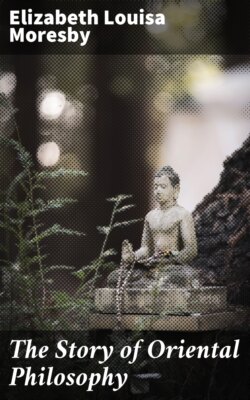Читать книгу The Story of Oriental Philosophy - Elizabeth Louisa Moresby - Страница 3
На сайте Литреса книга снята с продажи.
Preface
ОглавлениеTable of Contents
In writing this book upon the thought and thinkers of Asia my aim has been to convey what I have to tell in as clear and simple a manner as possible to readers unaccustomed to oriental modes of expression. This has meant more than translation from original languages, for beyond that lies the necessity for familiar English terms, which sometimes do not express the full implication of the original. I can hope only that I have not been wholly unsuccessful and that as little as possible has been lost on the way.
The value of the thought of Asia is daily more realized by western thinkers. The demand for knowledge of its riches grows more and more insistent. The caravans still journey from the heart of Asia, carrying merchandise more to be desired than gold or jewels.
The attainment of the West has been mainly on the intellectual-practical side. In the Orient it has been in the development of human consciousness, with the interesting exception of Japan, which appears to aim at the combination of both and to partake alike of eastern and western mentality. Iranian thought is necessarily included in any survey of Asiatic attainment.
The values of East and West do not clash. They are supplementary and interchangeable; and it will be well for the world when this is fully realized, and there is free circulation of thought. The faith of a nation is her soul. Her literature is her intellect. Nations who do not meet on these grounds cannot understand one another, and understanding is the most vital need of the present day. In this book, readers will at least find the Asiatic thought-systems set forth with the deep sympathy I feel for what I regard as the highest reach of human thought in such matters as they deal with.
In addition to my personal knowledge of the countries, peoples, faiths, and philosophies of which I write, I must acknowledge my sincere gratitude to the writers of the many books that I have consulted and to the many oriental friends with whom I have discussed these subjects.
A detailed list of authorities would form a volume in itself and would be impossible. I can say only that in one sense such a book as this can never be original. The bibliography does not attempt to cover my debt in quotation, paraphrase and spirit, or to name a tenth part of the books to which I owe so much. It gives a few books (under the headings of different countries), intended to be useful to students, advanced or otherwise, who wish to know more of the subjects treated. If any scholars should look into this book I ask them to remember the enormous difficulty of clarifying Asiatic thought for the general reader. They will realize obstacles which none can know who have not faced them.
L. Adams Beck,
(E. Barrington.)
Ceylon.
